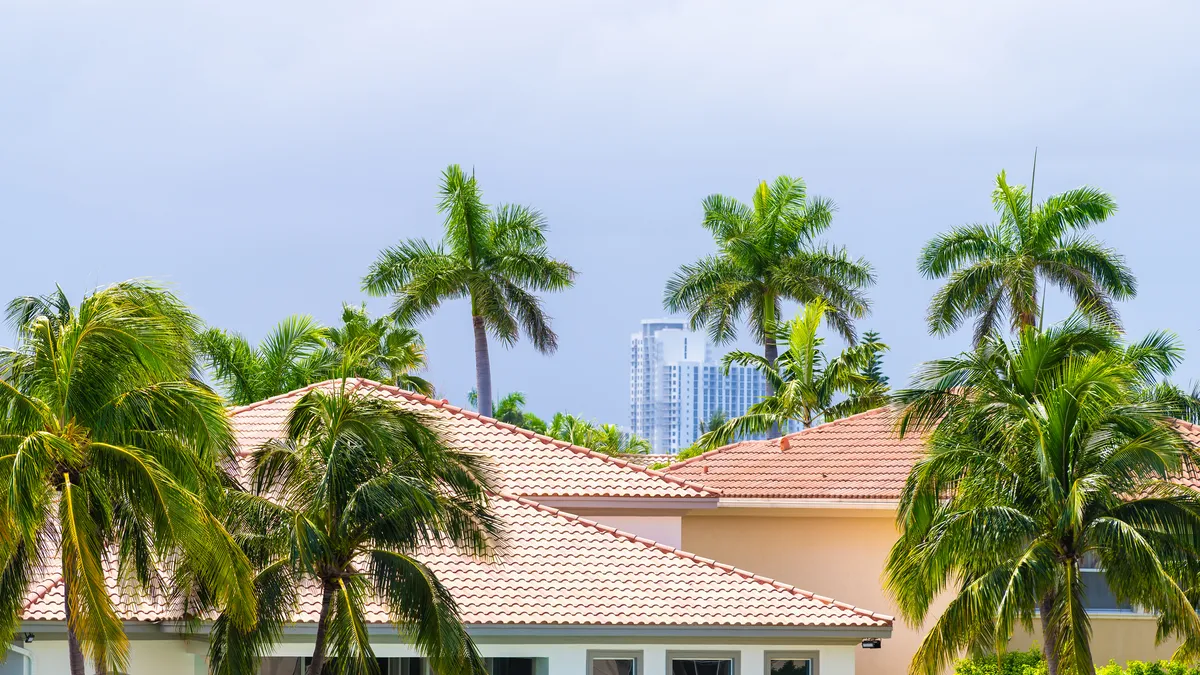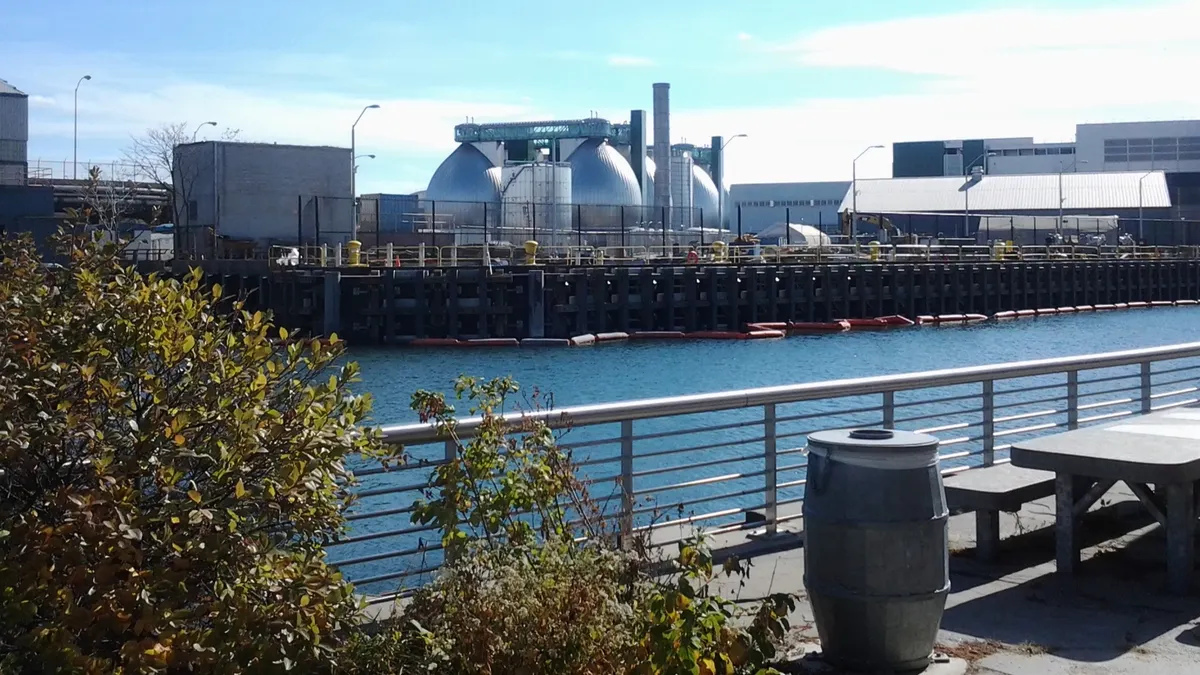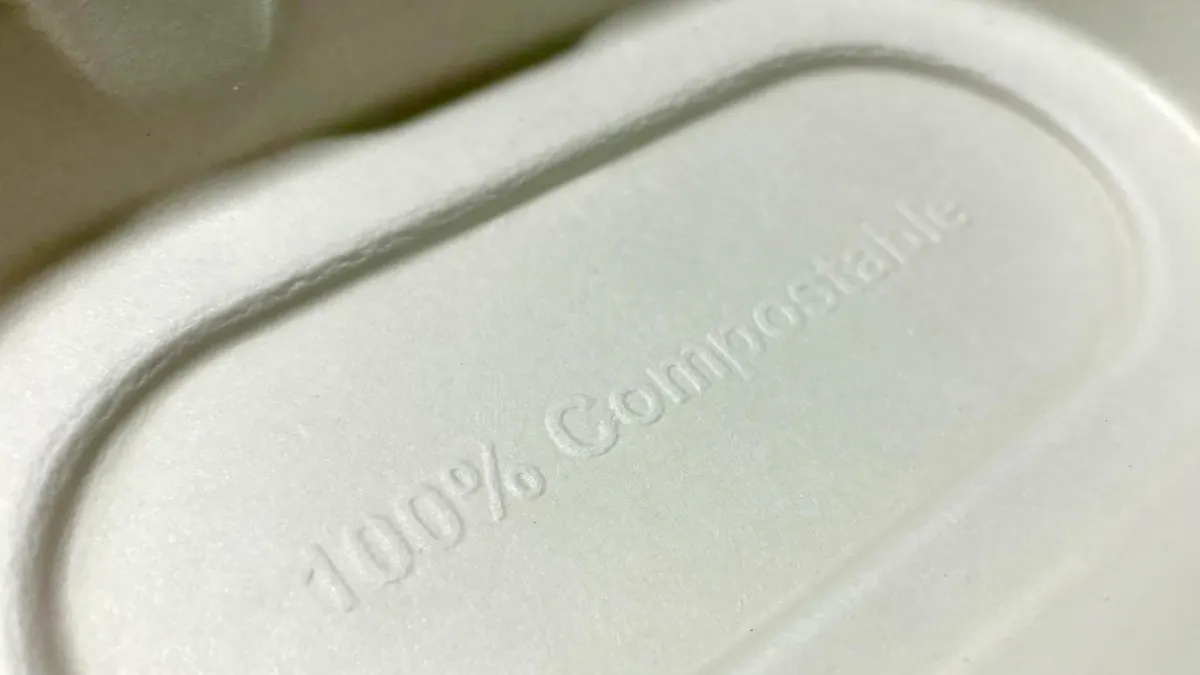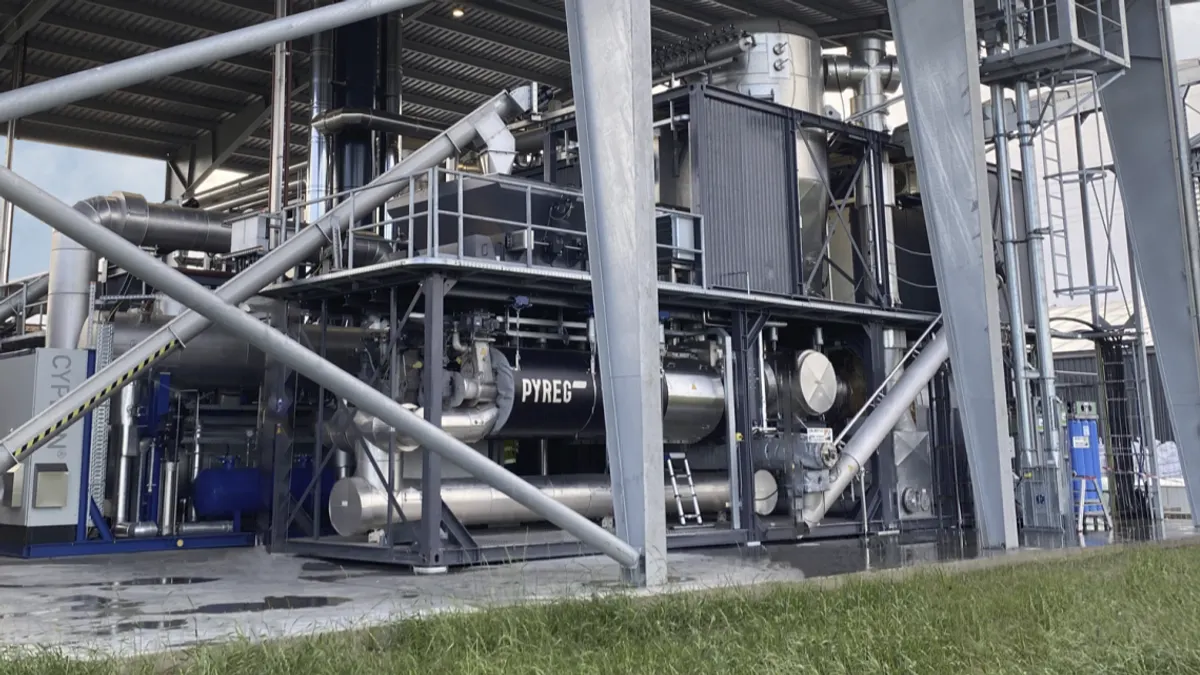Florida, one of the nation’s most populous states, lags behind other large states when it comes to organics recycling, according to industry experts. Composters and academics are trying to change that, however, through regulatory changes and more collaboration.
The Florida Department of Environmental Protection estimates that yard waste had a 59% recycling rate in 2022, while food waste recycling came in at 6%. Organics recycling proponents believe that a mix of state regulatory changes, market development support and broader education could shift this paradigm.
The state previously set a 75% recycling goal by 2020, for a range of materials beyond just organics, but this wasn’t achieved. A DEP report about next steps needed to reach the goal, released in late 2021, stated that “proper management of organics is essential if Florida is to reach its full potential for increasing the state’s recycling rate,” but the report offered few recommendations for direct action.
"We really do need the state of Florida to take a bigger lead in coming back to the recycling goal and putting in place both the different encouragement and possible funding [options] to encourage food waste composting and expand the amount of yard waste composting,” said Chris Snow, executive director of the Florida Composting Council, or FLCC, and vice president of corporate operations at organics recycler Veransa.
FLCC was founded as a chapter of the U.S. Composting Council in late 2022. Snow said that while the state has markets for compost, “producing large volumes of quality compost is something relatively new to the state of Florida.”
Recently introduced state legislation called on DEP to develop a plan and technical working group that would recommend next steps for making progress toward the goal. The legislation, which the National Waste & Recycling Association’s local chapter supported, passed the state’s House of Representatives but stalled in the Senate before the session ended in early March. While the bill didn’t specifically cite organics, the most recent analysis listed “end-user purchase rebates for Florida Certified Compost” as one example of a strategy the state could pursue.
The DEP did not provide a comment prior to publication.
Some of the agency’s ongoing efforts include support for the Florida Organics Recycling Center for Excellence website, which the DEP describes as a “framework and clearinghouse to promote organics recycling.” The agency’s report noted that, as of 2020, the state had an estimated 300 source-separated organics processing facilities that handled over 3.4 million tons of organics. As is the case in many parts of the U.S., most of these facilities were not equipped to handle food waste.
While the ongoing 75% recycling goal can be a driver for certain counties, experts say the market largely still dictates what happens to organic material. Snow said that because Florida has “much cheaper disposal rates than many other parts of the country," it’s still common for yard waste to end up in incinerators or landfills, in some cases being used as daily cover.
Agricultural opportunity
Given Florida’s lush climate, propensity for storms and active agricultural industry, experts say there is a lot of potential feedstock. While the high volume of vegetative debris generated during storm events can be difficult to manage, year-round growing presents another opportunity.
Agricultural operations in the state use a variety of horticultural substrates other than compost, such as peat or coconut core, in the process of growing their crops.
Mica McMillan, assistant professor at the University of Florida's Institute of Food and Agricultural Sciences Fort Lauderdale Research and Education Center, started to become more familiar with the state’s organics recyclers while looking at composting options for kenaf, another emerging agricultural substrate. McMillan has also been working to make growers more comfortable with using compost from yard waste companies such as Veransa, as well as from food waste composters Sunshine Organics in Jacksonville and Filthy Organics in Pompano Beach.
The process of harvesting peat is emissions-intensive. Other options, such as coconut core, became significantly more expensive during the pandemic. "So I wanted to replace peat — and potentially, if it became an issue,[coconut] core — for my growers so they would have a constant, consistent source for a horticultural substrate,” she said.
McMillan sees an untapped opportunity to facilitate more connections between growers and composters. A key part of this is generating more demand for finished compost, which in turn can boost the growth of the broader system.
On March 27, McMillan is helping to host the UF/IFAS Research Compost Consortium Conference to advance this conversation. The goal is to bring together composters, growers, local officials and policymakers. One message she hopes to get across to growers that may import horticultural substrate is that "we're working on things that you could potentially utilize, and it's right here in the state, you don't have to ship it from somewhere else."
Jairo Gonzalez, founder of the Organics Recycling Foundation, said sugarcane is another industry that has the potential to do more composting and use more of the material in its processes. He said the FLCC has begun engaging with some of these companies to promote composting within their operations and is seeing positive results. Given that Florida is also a significant U.S. source of other crops — including citrus fruits, tomatoes and and indoor foliage plants — Gonzalez sees much more room for improvement.
"It’s a very powerful state in that sense, and so it requires soil health. So you would think that because of their [interest in] soil health, they would be looking at recycling the organics a lot more than what I see. It's just starting,” he said.
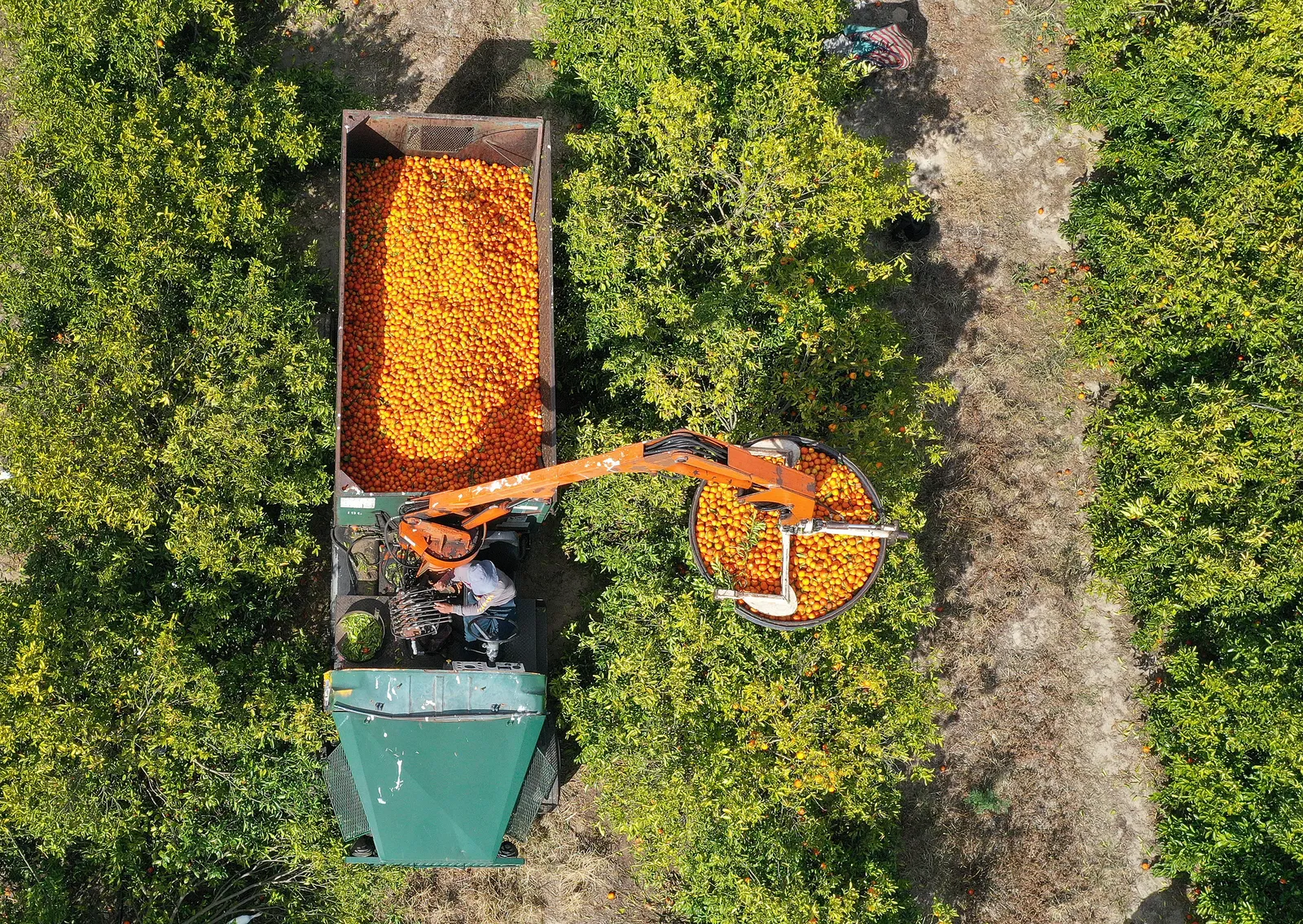
The future of food waste in Florida
The DEP’s 2021 report indicated that yard waste collection, either via curbside or drop-off programs, is active in multiple counties. Food scrap collection, on the other hand, is still more nascent.
Ensuring more consistency in food waste-derived compost is a key part of growing the market for compost, both in terms of quality and quantity.
Florida has begun to see an uptick in companies pursuing food waste recycling throughout the state, but so far Snow said, these are more apt to be community-scale efforts, plus “some other companies that are trying to capture food waste from the restaurant industry or other industries.”
Dustin Dubois, president of Filthy Organics (a service-disabled, veteran-owned business), said part of the issue is how the DEP regulates this material. Currently, the state classifies food waste as “garbage” rather than as a “recovered material.” This means counties may be less incentivized to diver it, and in some cases they may even try to block diversion efforts due to local flow control regulations.
In Dubois’ view, this structure “discourages doing actually the right thing with it” in favor of disposing of material. Also the owner of a construction company, Dubois noted that fill is in high demand within the state, creating another potential competing market for material such as yard debris.
Filthy has developed a growing business composting food and yard waste at its site using an aerated static pile system. The company handles around 3,000 pounds of food waste per week and a similar amount of yard waste. While Dubois started out focused on just composting, he saw a need to expand into collection. The company currently runs one pickup truck three days per week in the Broward County area, where he says major waste haulers are not currently focused on this service.
"Right now nobody's hauling just food waste” besides him in his area, said Dubois. “Somebody's gotta get it going."
Dubois has also been working with the Organics Recycling Foundation to more directly engage municipalities in this effort. Gonzalez, who previously helped found the New Jersey Composting Council, said he saw a need for a group that could provide more direct support to stand up programs in Florida.
Last year, the nonprofit worked with Deerfield Beach to secure a grant from the U.S. Department of Agriculture to launch a pilot. Filthy now manages organics for an estimated 100 city residents and five businesses in a program that is free for participants through March 2025.
“We're the only municipal food waste diversion and composting program in South Florida,” Gonzalez said, and this is beginning to attract interest from other government officials. Coral Springs recently started a drop-off program at its transfer station with ORF and Filthy, and others could follow.
"It kind of demonstrates to them that we're doing it, and it's being done in their own backyard,” said Gonzalez.
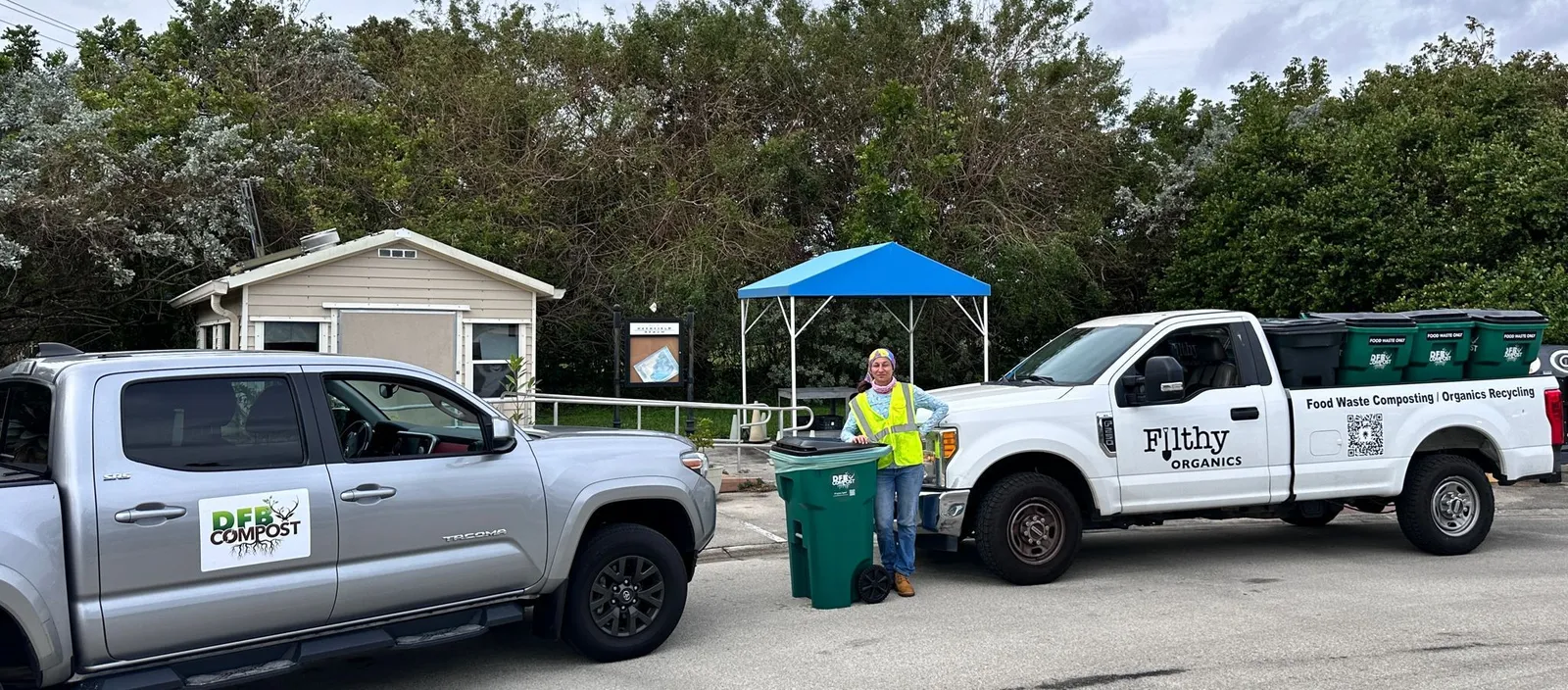
Scaling further will depend, in part, on how the state’s regulatory landscape evolves. Dubois said DEP is “100% behind this,” and “they are big fans of composting and all the efforts that everybody's making toward getting it moving in Florida.” Gonzalez similarly said that certain parts of the agency are “incredibly receptive” and motivated to follow the U.S. EPA’s lead on food waste reduction goals.
But composters also said that without clear direction from the state agency, or buy-in from legislators, the Florida’s current classification of food waste as garbage stands in the way. This presents added complexities when it comes to permitting, they said, as local ordinances may follow state statutes in terms of how they classify facilities of a certain size.
"The FLCC is very much wanting to look at the state's definition of solid waste and move food waste into the recoverable material classification so that it does make it easier for composting businesses to come into different counties where, right now, it's difficult to do because food waste is considered solid waste,” said Snow.
Gonzalez and others have been actively engaging with state lawmakers in Tallahassee to raise awareness about the issue, and they hope that the change can be accomplished without controversy.
"It doesn't stop the landfills or the incinerators from taking it. It stops them from telling us we can't take it, too,” said Dubois.
Even as these statewide challenges remain, local professionals said momentum is building. Many were buzzing from the USCC hosting its annual conference in Daytona Beach this year, and McMillan said she’s excited to continue the discussion at this month’s Compost Consortium event.
"Let's talk about how we can move some of the research forward and some of these policies forward so that this just becomes the norm down here in Florida."


